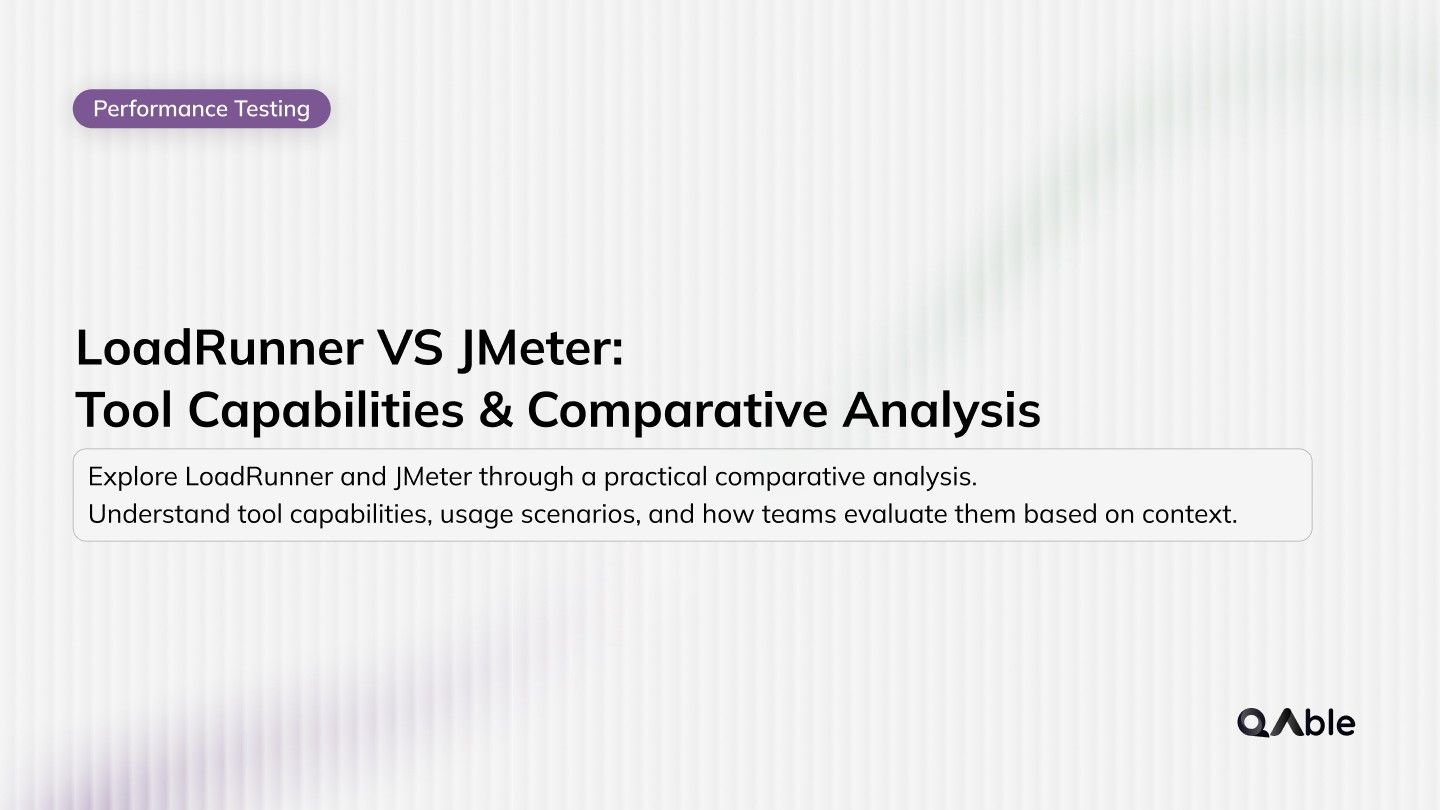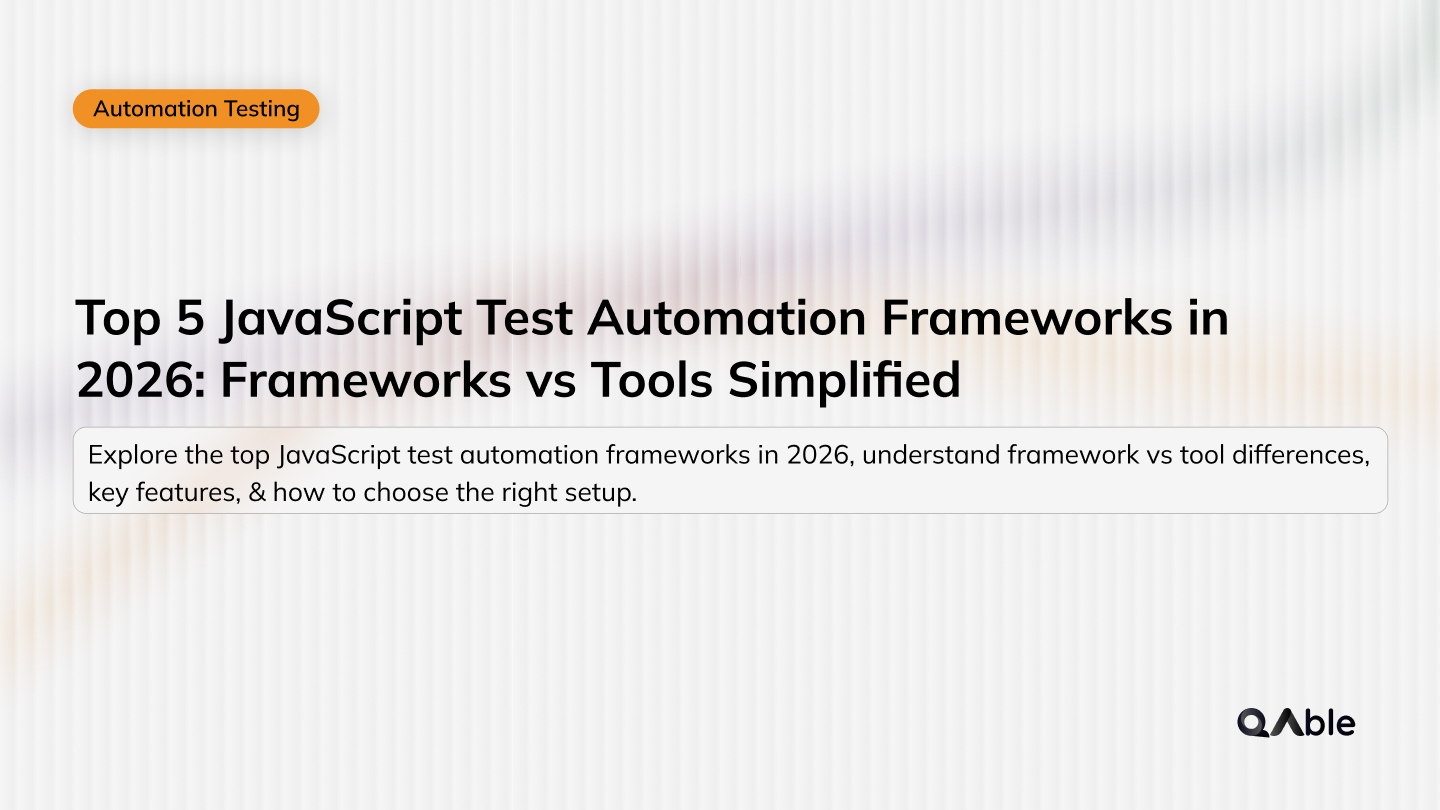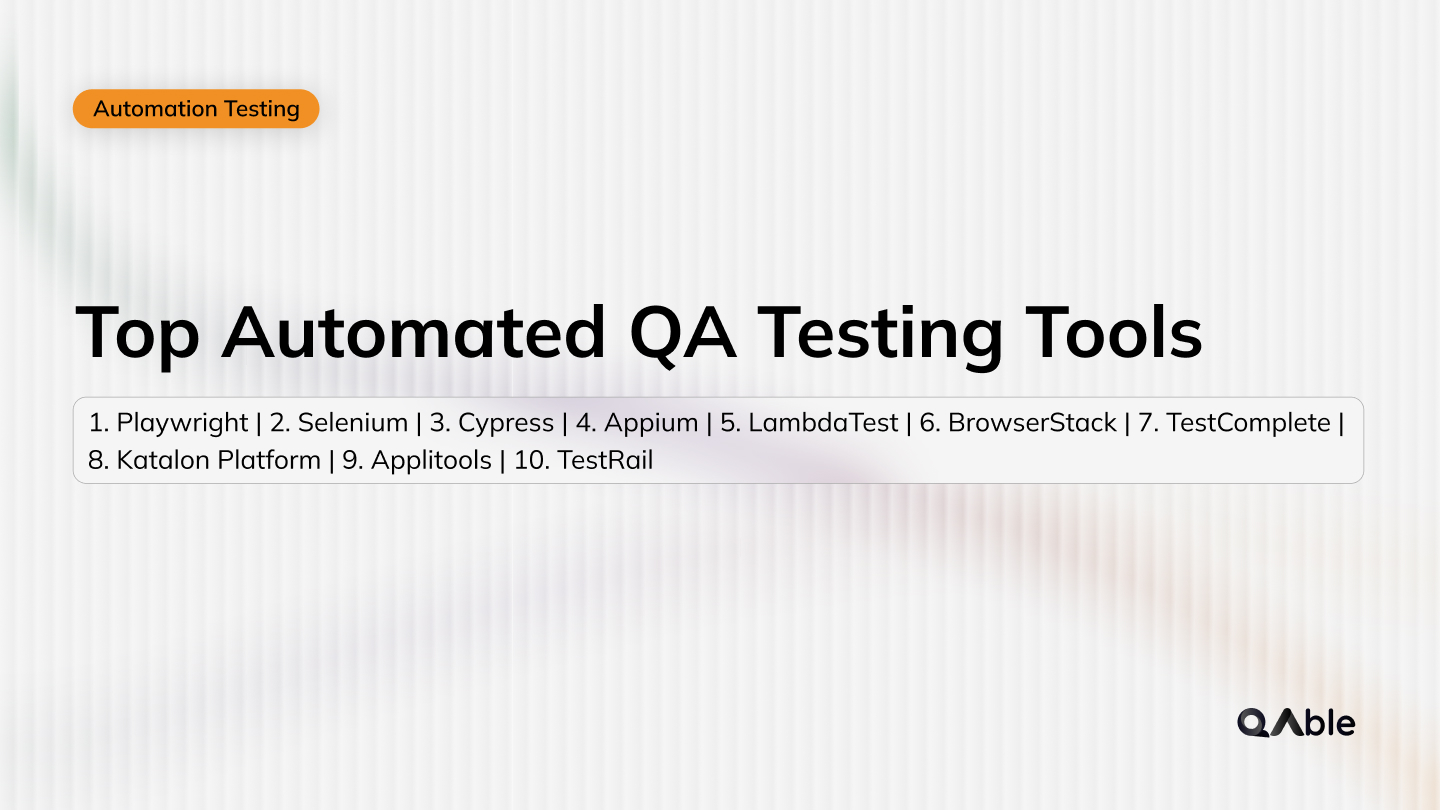Table of content
SHARE THIS ARTICLE
Is this blog hitting the mark?
Contact Us
Table of Content
- Why is Enterprise Application Testing Important?
- How to Implement Enterprise Application Testing Effectively?
- What are the Best Practices for Enterprise Application Testing?
- How Can We Help You with Enterprise Application Testing?
- FAQs
Enterprise applications are software systems that support the core business processes of an organization. They are complex, scalable, distributed, and often mission-critical. Examples of enterprise applications include ERP, CRM, SCM, HRM, and BI systems.
Enterprise applications are essential for the success of any business, but they also pose significant challenges for quality assurance. Testing enterprise applications requires a systematic, rigorous, and holistic approach that covers various aspects such as functionality, performance, security, usability, compatibility, and reliability.
In this blog post, we will explore the importance of enterprise application testing and how it can be effectively implemented. We will also share some best practices and examples of successful testing strategies. By the end of this post, you will have a better understanding of how to ensure the quality of your enterprise applications and how our services can help you achieve that goal.
Why is Enterprise Application Testing Important?
Enterprise application testing is important for several reasons:
- It ensures that the enterprise applications meet the business requirements and expectations of the users and stakeholders.
- It verifies that the enterprise applications function correctly and efficiently under various scenarios and conditions.
- It identifies and eliminates any defects, errors, or vulnerabilities that could compromise the performance, security, or usability of the enterprise applications.
- It enhances the user experience and satisfaction by delivering high-quality, reliable, and user-friendly enterprise applications.
- It reduces the risks and costs associated with poor quality, such as rework, maintenance, downtime, customer complaints, or legal issues.
Enterprise application testing is not only important, but also challenging. Enterprise applications are often large, complex, and dynamic, involving multiple components, technologies, platforms, and integrations. They also have to deal with high volumes of data, transactions, and users, as well as strict regulations and standards. These factors make enterprise application testing a demanding and time-consuming task that requires specialized skills, tools, and methodologies.
Also read: ERP Software Testing Examples for Enterprises
How to Implement Enterprise Application Testing Effectively?
To implement enterprise application testing effectively, you need to follow a systematic and structured process that covers the following steps:
- Planning: This is the first and most crucial step of the testing process. It involves defining the scope, objectives, strategy, and plan of the testing project. It also involves identifying the test requirements, test cases, test data, test environment, test tools, test team, and test schedule. Planning helps to ensure that the testing project is aligned with the business goals and expectations, and that the testing resources are allocated and utilized efficiently.
- Designing: This is the step where the test cases are designed and developed based on the test requirements. Test cases are the scenarios or situations that are used to verify the functionality, performance, security, usability, compatibility, and reliability of the enterprise applications. Test cases should be clear, concise, and comprehensive, covering all the possible inputs, outputs, and outcomes. Test cases should also be traceable, reusable, and maintainable, allowing for easy tracking, modification, and execution.
- Executing: This is the step where the test cases are executed and the test results are recorded. Test execution can be done manually or automatically, depending on the type, complexity, and frequency of the test cases. Manual testing involves human testers performing the test cases and observing the results. Automatic testing involves using software tools or scripts to perform the test cases and generate the results. Test execution should be done in a controlled and realistic test environment that simulates the actual production environment as closely as possible.
- Analyzing: This is the step where the test results are analyzed and evaluated. Test analysis involves comparing the actual results with the expected results, and identifying any discrepancies, deviations, or defects. Test analysis also involves measuring and reporting the test metrics, such as test coverage, test effectiveness, test efficiency, test quality, and test productivity. Test analysis helps to assess the quality of the enterprise applications and the testing process, and to identify the areas of improvement and optimization.
- Reporting: This is the step where the test findings and recommendations are communicated and documented. Test reporting involves preparing and presenting the test summary, test report, test feedback, and test closure. Test reporting helps to inform and update the stakeholders and the users about the status, progress, and outcome of the testing project, and to provide actionable insights and suggestions for quality enhancement and assurance.
Also read: What are the Different Kinds of System Testing in Software Testing?
What are the Best Practices for Enterprise Application Testing?
Enterprise application testing is a complex and challenging task that requires a lot of planning, preparation, and execution. To ensure the success and effectiveness of the testing project, you need to follow some best practices, such as:
Adopt a risk-based approach
A risk-based approach prioritizes the testing activities based on the level of risk and impact of the enterprise applications. It helps to focus on the most critical and important aspects of the enterprise applications, and to allocate the testing resources accordingly.
A risk-based approach also helps to mitigate the risks and issues that could affect the quality, performance, security, or usability of the enterprise applications.
Use a suitable testing methodology
A testing methodology is a framework or a model that guides the testing process and defines the testing phases, activities, roles, and deliverables. There are various testing methodologies available, such as waterfall, agile, devops, or hybrid.
You need to choose a testing methodology that suits the nature, scope, and complexity of your enterprise applications, and that supports the collaboration, communication, and coordination of the testing team and the stakeholders.
Leverage automation and tools
Automation and tools can greatly enhance the efficiency, effectiveness, and accuracy of the testing process. Automation and tools can help to perform repetitive, tedious, or complex tasks, such as test case generation, test execution, test analysis, or test reporting.
Automation and tools can also help to save time, cost, and effort, and to improve the consistency, reliability, and quality of the testing results. However, automation and tools are not a substitute for human judgment, creativity, and intuition. You need to use automation and tools wisely and appropriately, and to complement them with manual testing when necessary.
Implement continuous testing and feedback
Continuous testing and feedback are essential for ensuring the quality and reliability of the enterprise applications throughout the development and deployment lifecycle. Continuous testing and feedback involve testing the enterprise applications at every stage and iteration, and providing timely and constructive feedback to the developers, users, and stakeholders.
Continuous testing and feedback help to detect and resolve any defects, errors, or issues early and quickly, and to ensure that the enterprise applications meet the changing requirements and expectations of the users and the business.
Partner with a professional testing service provider
Enterprise application testing is a specialized and sophisticated task that requires a lot of expertise, experience, and resources. Partnering with a professional testing service provider can help you to overcome the challenges and difficulties of the testing project, and to achieve the desired quality and results.
A professional testing service provider can offer you a wide range of QA testing services, such as functional testing, performance testing, security testing, usability testing, compatibility testing, and reliability testing. A professional QA testing service provider can also provide you with the best testing tools, technologies, methodologies, and practices, as well as the most qualified and experienced testing team.
How Can We Help You with Enterprise Application Testing?
We are India’s leading software testing company, offering comprehensive and customized testing solutions for enterprise applications. We have more than 10 years of experience and expertise in testing various types of enterprise applications, such as ERP, CRM, SCM, HRM, and BI systems.
We have a team of more than 100 certified and skilled testers, who can handle any testing project, regardless of the size, scope, or complexity. We use the latest and most advanced testing tools, technologies, methodologies, and practices, to ensure the highest quality and standards of the testing process and the testing results. We also offer flexible and affordable pricing models, to suit your budget and needs.
We can help you with enterprise application testing by:
- Understanding your business goals and requirements, and designing a testing strategy and plan that meets your expectations and specifications.
- Developing and executing test cases that cover all the functionality, performance, security, usability, compatibility, and reliability aspects of your enterprise applications.
- Analyzing and reporting the test results, and providing you with detailed and actionable feedback and recommendations for quality improvement and assurance.
- Supporting you throughout the QA testing project, and ensuring your satisfaction and success.
If you are looking for a reliable, professional, and experienced enterprise testing partner for your enterprise applications, look no further than us. We are here to help you achieve your quality goals and objectives, and to deliver high-quality, reliable, and user-friendly enterprise applications to your customers and users.
Contact us to get a free quote and consultation for your enterprise application testing project. We are eager to get in touch with you and collaborate with you. 😊
Discover More About QA Services
sales@qable.ioDelve deeper into the world of quality assurance (QA) services tailored to your industry needs. Have questions? We're here to listen and provide expert insights


Nishil Patel is the Co-founder of QAble, delivering advanced test automation solutions with a focus on quality and speed. He specializes in modern frameworks like Playwright, Selenium, and Appium, helping teams accelerate testing and ensure flawless application performance.
.svg)














.webp)
.webp)
.png)
.png)











.png)



.png)

.png)

.png)






.jpg)













.webp)

